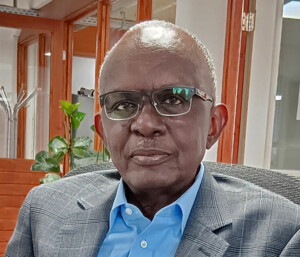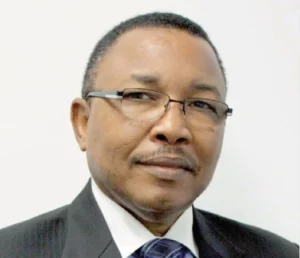German researcher: The spoilers of Darfur
The 2020 Juba Peace Agreement has not brought peace to the Sudanese conflicts, writes Gerrit Kurtz. In an article for the German Institute for International and Security Affairs, he maps out how it has served to create new alliances between armed groups and security forces in Sudan.
 Marches of the Millions against Sudan’s 'spoilers' in El Daein, capital of East Darfur, on June 30 (Mohamed Mustafa)
Marches of the Millions against Sudan’s 'spoilers' in El Daein, capital of East Darfur, on June 30 (Mohamed Mustafa)
The 2020 Juba Peace Agreement has not brought peace to the Sudanese conflicts, writes Gerrit Kurtz. In an article for the German Institute for International and Security Affairs, he maps out how the agreement has served to create new alliances between armed groups and security forces in Sudan.
According to Kurtz, “Sudan is still a long way from a new transition process under a functioning non-military leadership with broad popular support. The security forces have effectively ruled since their coup in October 2021 and have only appointed a caretaker government.”
Focusing on the “spoilers of Darfur,” the article explains that the attempts of the Sudanese government to present conflict in Darfur as purely tribal ignores the complex causes of violence in the region and the influence of Khartoum in ongoing conflict. Meanwhile, “the conflict resolution process in Darfur and Sudan's other peripheral regions is shifting the balance of power in Khartoum in favour of pro-democracy violent entrepreneurs.”
Kurtz explains that the causes of conflict in Darfur “can be traced back both to the long-term effects of previous violence and to the influence of the power struggle in Khartoum.” They include competition from groups pursuing different forms of employment intensified by climate change, socio-economic inequalities and high youth unemployment, weakened traditional conflict management mechanisms, reforms in local government, and the strengthening of ethnic militias. “Violent confrontations serve as a tool for violent political entrepreneurs to make themselves heard and increase the price of their loyalty in negotiations with government officials.” In addition, the article notes that rivalries between armed militias for influence in Khartoum have increased and self-defence units are increasingly organizing again.
“Effective peacebuilding requires a comprehensive and conflict-sensitive approach that addresses the needs of all groups, including nomadic pastoralists and settled or displaced farmers… More intensive peacebuilding by the EU and Germany should go hand in hand with intensified diplomatic engagement. The Europeans can lobby their partners in the Arabian Gulf to support a new transition process in Sudan. Saudi Arabia and the UAE, while not supporters of Sudanese democracy, do prefer stability and security in their neighbourhood,” says Kurtz.
You can read the full article (in German) here.











 and then
and then